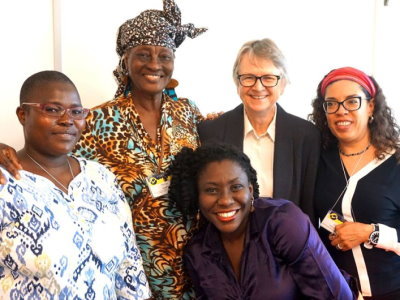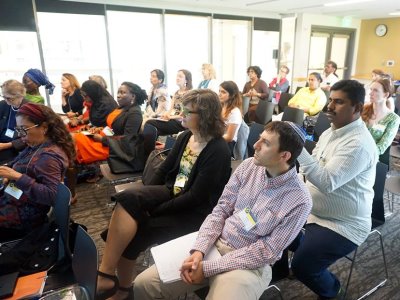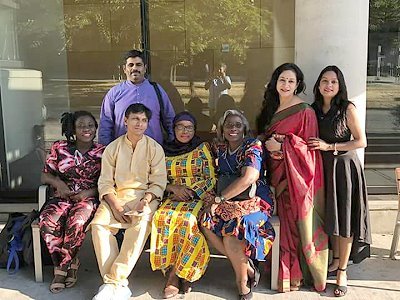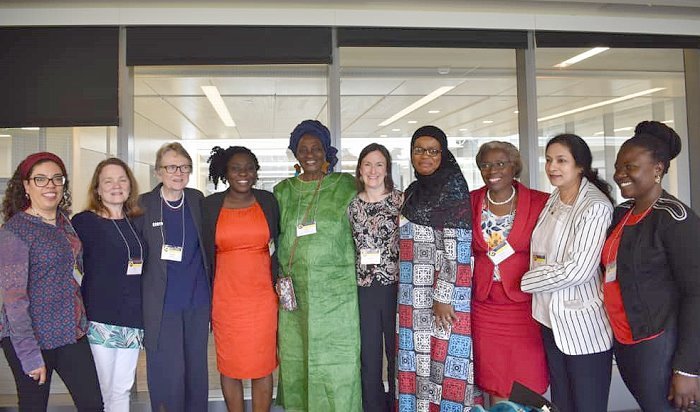 Having participated in IIFET 2016 in Scotland, I knew IIFET 2018, from 16 to 20 July in Seattle was a conference not to miss! Thanks to a combination of grants, including from IIFET and Mundus maris for presenting papers, three of us from Mundus maris in Nigeria were able to participate actively: Prof. Stella Williams, Dr. Fakoya Kafayat and myself, Tomi Solanke.
Having participated in IIFET 2016 in Scotland, I knew IIFET 2018, from 16 to 20 July in Seattle was a conference not to miss! Thanks to a combination of grants, including from IIFET and Mundus maris for presenting papers, three of us from Mundus maris in Nigeria were able to participate actively: Prof. Stella Williams, Dr. Fakoya Kafayat and myself, Tomi Solanke.
The appetizer to set the tune during the conference was the workshop on Fisheries Performance Indicators given by Dr Chris Anderson. We talked to him after the presentation and it turned out to be a helpful and informative chat as he linked us up with the World Bank Officer (Jing Jie Chu) in charge of relations with developing countries.
A high point for us was at the poster session on Tuesday evening where we got quality information about current works in FAO and how to be involved. We would later consolidate this lead at the workshop on Friday which we attended and connected with the facilitator (Junning Cai).
 We had an African meeting very early on Wednesday, 18 July. There we were able to connect with internationally renowned scientists, such as Prof Rashid Sumaila, Prof Paul Onyango, Dr Yemisi Oloruntuyi and a host of others. We agreed on a number of actions such as putting together a compilation of African IIFET members and encouragement to start an official affiliation to improve our participation in future conferences, where this was not yet the case. That would facilitate improving data about international trade from Africa for innovative analyses that could be policy relevant.
We had an African meeting very early on Wednesday, 18 July. There we were able to connect with internationally renowned scientists, such as Prof Rashid Sumaila, Prof Paul Onyango, Dr Yemisi Oloruntuyi and a host of others. We agreed on a number of actions such as putting together a compilation of African IIFET members and encouragement to start an official affiliation to improve our participation in future conferences, where this was not yet the case. That would facilitate improving data about international trade from Africa for innovative analyses that could be policy relevant.
The women in science programme too was a great time for us. Here, Prof Stella Williams was one of the guest speakers and we were able to see similarities and connections in our career progress despite coming from different regions. The convergence of our experiences despite varying backgrounds and circumstances sparked our confidence, resilience and assertiveness. It reassured us that our career pursuit is never an isolated journey. We were also able to connect with other researchers while delivering our papers. There are works in the pipeline now to collaborate on.
Worthy of mention was our active participation in the gender session. We were able to have conversations and discussions to improve the relevance of gender sessions in IIFET and other reputable conferences. We were able to meet Dr Meryl Williams, Dr Arpita from India, Dr Carmen Pedroza from Mexico and a host of others. My paper addressed the level of empowerment of women in two coastal communities identifying key factors for their status.
The undisputed highlight for us at IIFET 2018 was the opportunity to host a Special Session: “Barriers to fisheries markets and trade in the developing world”. We were graciously assigned six papers for the session chaired by Tomi Solanke. Prof. Stella Williams gave the introductory presentation on behalf of Mundus maris asbl. She highlighted the state of international trade in many developing countries, the challenges and barriers experienced, future prospects and how to address at least some of these. Among others, she cautioned against uncritical acceptance of the MSC certification given the high number of fisheries benefitting from the blue label without respecting the rules and the desirability for reform so that trust was re-established. The session attracted a diversified audience of professionals from the global south and industrial countries. It was very very engaging marking almost the end of the conference.
 The following papers were presented and discussed during the session.
The following papers were presented and discussed during the session.
- Oluyemisi Oloruntuyi: “Sustainability road maps as a mechanism towards Marine Stewardship Council certification in African fisheries”
- Adeola E. Ayano et al.: “Captured Fish Products' Quality and International Trade in Developing World”
- Foluke Areola et al.: “Bumpy or smooth road ahead in compliance with European Union regulations? Challenges and opportunities for smoked catfish export from Nigeria.”
- Yetunge Agbeja and Damilola Adekoya: “Marketing Efficiency of Some Selected Seafood Markets in Lagos State, Nigeria.”
- Paul Onyango and Sloans Chimatiro: “Slipping Millions: A Case study of Tanzania’s Informal Cross Border Fish Trade in the Eastern Africa Trade Corridor”.
The session was co-hosted by Mundus maris asbl and African Women Fish Processors and Traders Nigeria Network (AWFISHNET). Souvenirs were given to the presenters in the name of both organisations. The feedback following the session confirmed the interest it had triggered.
Over and above, participation in IIFET 2018 was a very worthwhile experience and a wonderful opportunity to learn and reflect together with researchers from around the globe about key issues in understanding the drivers in fisheries production and trade and devising policy relevant responses for better results that are sustainable.
Text and pictures Tomi Solanke.









